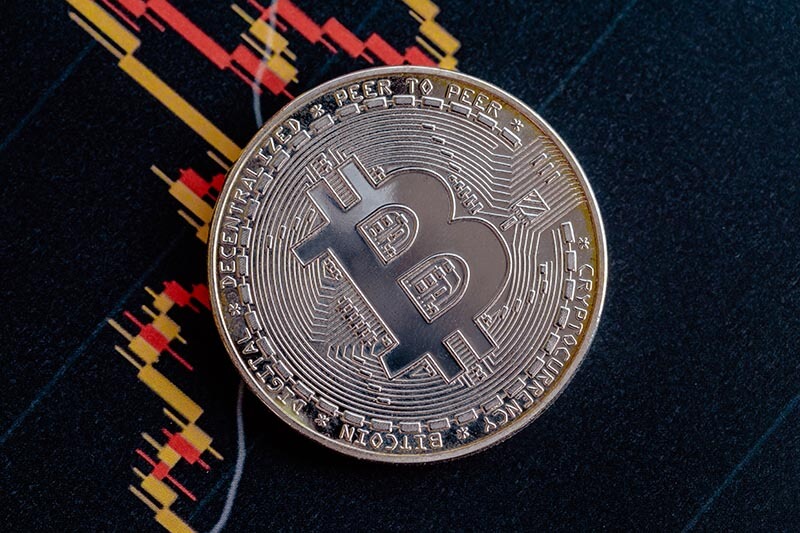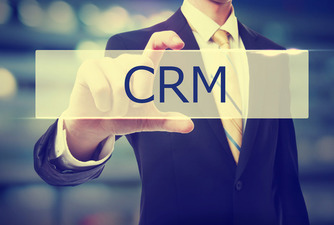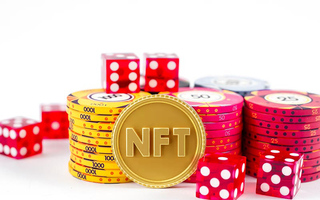Cryptocurrency Casinos: the Latest Trends in the Development and Control of the Industry
The use of cryptocurrency payments is becoming more and more popular not only in the gambling field but also in other sectors of the economy and commerce. The capitalisation of the market of digital money is estimated at billions of dollars and the governments of most countries had to reckon with a new global financial instrument.

Blockchain in the Gambling Sector: About Crypto Casinos
All gambling projects that provide users with the ability to place bets and withdraw winnings in digital money are considered bitcoin casinos. At the same time, operators can choose various technical ways to launch a startup:
- Customisation of a typical website with slot machines. A cryptocurrency wallet and systems that support payments in virtual money (for example, Visa, PayPal, etc.) are additionally integrated into turnkey online casinos.
- Development of a platform using decentralised technologies. The product is created on the basis of the blockchain principle ― all components of the system consist of separate information blocks without a single control centre.
Technological Capabilities and Advantages of Bitcoin Casinos

The development of crypto casinos is one of the most promising gambling trends of 2021. The rapid growth of the popularity of digital projects is associated with their unique characteristics and capabilities:
Anonymity of Participants
To make payments or withdraw money, it is not necessary to provide personal data ― it is enough to provide the bitcoin wallet number and password to confirm the transfer. Thus, crypto casino operators can accept bets that were placed even in those regions where gambling is forbidden by law.
It is impossible to track users and disclose any personal data since the system simply does not use it.
Low or Zero Commissions
Due to the lack of a single control centre, there is simply no one to set the commission for withdrawal of funds and control the netting off of penalties from money transfers.
Owners of gaming sites can set a minimum commission to cover the expenditures for the use of software ― this is their decision, and the size of deductions will depend only on the internal financial policy of the company.
Guaranteed Fulfillment of Financial Obligations
A transaction within the system cannot be cancelled or intermitted. It is also impossible to block the user's wallet. It is guaranteed that the money transfer will be completed regardless of the time or frequency of requests.
Information on transactions is automatically saved in a new decentralised section, and it cannot be faked, hidden or deleted. The system automatically blocks any third-party intervention.
Low Threshold for Bets
Due to the unique structure of digital currency, gamblers can place a minimum bet of 0.001 dollars. Such a limit can help operators to attract a new audience (users with no experience and those casino visitors who do not like to risk large sums).
The same situation is with the withdrawal of funds: you can order a transfer for almost any amount of money if the operator does not indicate specific limits.
Market Coverage
You can carry out transactions within the system without paying attention to the geolocation of participants.
Since 2020, most countries are gradually introducing tools to control the cryptocurrency market (more detailed information can be found further in this article) but so far, there is no single centralised regulation program. Entrepreneurs can interact with gamblers from any region.
Security Assurances
Decentralised technologies are a unique digital tool that is used not only in the financial sector but also in the field of network security.
Guarantees of the protection of user data in crypto casinos:
- Open balance figures. All information blocks have a unique address based on blockchain technology. Knowing the block code, any user can get access to all information that is encrypted in it: from personal balance to a detailed history of payments for a certain period.
- Provable fairness program. The system is launched even before the game starts, generates a sequence, encrypts it, and transfers to a secure server for storage. After the end of the round, gamblers can use their passwords and check the correspondence between the encrypted and dropped values.
Regulation of Cryptocurrency iGaming Projects in 2021

Despite the high use of decentralised technologies in the financial market, there is still no single industry control program in the world.
The legislative collapse is connected with the dual nature of digital money. On the one hand, the tool is used as a full-fledged financial infrastructure, on the other hand, it is widely used to transfer and store information flows.
In different countries, digital currency is considered to be:
- the full-fledged financial instrument;
- the payment unit;
- the subject of sale;
- the virtual asset;
- securities, etc.
The only thing that countries agreed upon is that bitcoin and similar products should not be considered an alternative to foreign fiat currencies.
By 2021, there are several states that got as close to the global regulation of the cryptocurrency market as possible:
Japan
As the “homeland” of digital currency, the country was one of the first to legalise cryptocurrency and recognise it as a full-fledged means of payment.
The situation in the industry is monitored by the local Ministry of Economic Affairs. It actively introduces audit standards for all types of blockchain transactions. Several government banks are already working with digital money. The local regulator has imposed a profit tax on any cryptocurrency business projects ― 55% of the annual revenue.
USA
Due to the peculiarities of the structure of this country, the industry is regulated by specialised legislative amendments in each state.
At the moment, there are 3 main areas:
- regulation of the economy with the recognition of bitcoin as a full-fledged analogue of the local fiat currency;
- award of the status of a property asset to digital money (a private virtual property);
- recognition of bitcoin as one of the types of securities and its use for exchange trade.
Despite the absence of a centralised control structure and a unified status of cryptocurrencies, the country already has a special tax rate for blockchain projects. The penalty is charged on the net annual revenue of enterprises and can vary from 15 to 35%.
European Union
The main problem of the market regulation is the use of separate legal solutions in each of the countries included in the eurozone.
The European Commission has repeatedly announced its desire to create a pan-European structure for the digital market and completely eliminate the manifestations of legislative and regulatory fragmentation.
In September 2020, a pilot operative mode for companies with crypto assets was put forward for consideration. All service and decentralised payment instruments must comply with the provisions of the MiCA (Markets in Crypto-Assets).
According to the forecasts of the European Commission, in the coming years, the MiCA program will control all global manifestations of the digital market ― from the regulation of the issuance of virtual assets to the money storage and payment for goods and services.
There are negotiations on the issue of the creation of a single digital currency from the European Central Bank. The special working group was formed in September 2020. It conducted a large-scale audit of the advisability of launching the program and has already applied for the registration of the “crypto euro” trademark.
According to the research:
- 53% of European citizens prefer cash payments;
- 34% of respondents use hybrid payment instruments;
- 13% of the population agrees to a complete transition to the digital euro.
In April 2021, the European Investment Bank issued the first block of digital assets to the value of 100 million euros.
| Regulation of the cryptocurrency industry in Europe in 2021 | |
| Germany | Bitcoin was recognised as a full-fledged payment instrument in March 2020. And by August, the bill on market regulation came into force. Moreover, the local regulator allowed the issuance of digital assets (the analogue of marketable securities). At the moment, cryptocurrency is equivalent to bearer bonds. From 2021, German enterprises are allowed to invest in electronic assets up to 20% of their annual turnover |
| France | Since April 2020, cryptocurrencies have had the official status of a digital asset in this country. In October 2020, a number of amendments were adopted, which tightened the regulation of the new market. According to the new law, all local enterprises with a turnover in electronic money must verify their customers |
| Switzerland | Bitcoin has received the status of an alternative form of an exchange asset. Moreover, the market has no separate legal framework: financial legislation was completely restructured. Cryptocurrency assets can be stored in a local SEBA bank, and the regulator has developed a whole new system for assessing the authenticity of assets. The country also provides a special tax table for blockchain projects: they have to pay the property tax (0.3–0.5%) to the public treasury. Moreover, the penalty is charged only from the initial capital of the project, the turnover and income from the net growth of the coin are not subject to tax |
| Bitcoin is recognised as an alternative means of payment. The country was one of the first to develop industry control standards and by 2019, more than 500 blockchain projects were registered here. Each of these companies was automatically assigned the status of an international enterprise. Estonian bitcoin casinos are not subject to VAT and other taxes until the moment of the distribution of profits. Commission fees are paid by customers of the gambling establishment in accordance with the regulations in their country. Local residents are charged a fixed rate of 7% | |
| Spain | The local regulator placed cryptocurrency entrepreneurs under an obligation to register financial assets in the country's central bank. Entrepreneurs are required to fully disclose the size of the authorised capital, annual profit, and other financial statements with the regular publication of changes in public registers. By 2024, the country plans to introduce its cryptocurrency into the national economy |
Nuances of the Promotion of Blockchain Projects

At the moment, most countries are busy improving their current financial policies and issuing national digital assets. There are practically no active actions on the promotion of decentralised startups.
Advertising of Decentralised Casinos in the EU
If this is about bitcoin casino marketing in Europe and the CIS countries, operators should be guided by the standard norms that are relevant in 2021:
- limit advertising broadcasts on radio and television;
- control the time of daily visits to the web resource and interrupt the game session upon its expiration;
- block and cancel transactions made via credit cards;
- set daily betting limits.
Advertising of Cryptocurrency Projects in the USA
In the American market, there is a completely different policy. Since 2018, programs for the promotion of decentralised technologies in the United States have been tightly controlled by Google.
At first, advertising of any blockchain services was automatically blocked but since September 2018, the company has moderated its policy, and enterprises that have passed a special certification organised by Google were able to place advertisements on search engine platforms.
New amendments will come into force in August 2021. According to the statement released in June 2021, the US advertising market will be open to almost all types of cryptocurrency projects from August 3rd.
To launch an advertising campaign in America on the basis of Google push services, operators will need to:
- register a business in the FinCEN registry or at a specific state level;
- comply with all state and federal legal requirements;
- control the compliance of the advertising program with the rules of promotion established by Google.
All previously valid licences will be revoked by early August, and applications for recertification can be filed from July 8, 2021.
According to the new policy, decentralised enterprises cannot advertise:
- the initial offering of electronic coins;
- public ICO offers, DeFi protocols, and other services for the sale and trading of coins;
- Web resources that compare cryptocurrency emitters or offer related products.
The Main Things about the Operating Principles and Advertising of Bitcoin Casinos in 2021
The use of decentralisation technologies is one of the latest trends of 2021. The turnover of the industry is already estimated at billions of dollars and the world’s leading countries are actively developing new market control programs.
- Due to the peculiarities of blockchain, crypto casinos guarantee customers absolute security and transparency of work. Decentralised technologies allow you to track the history of all transactions. Moreover, the system makes it possible to control the outcome of the game session using any external resource without involving the company management.
- Bitcoin casinos attract the audience with the possibility of placing low bets. You can start playing with 0.01 dollars. The minimum odds guarantee a stable increase in both beginning customers and those gamblers who do not want to risk large sums.
- There is no single policy that regulates cryptocurrency startups. Each country offers its market control standards. The European Union has already registered a unique trademark “crypto euro” and released the first block of digital assets in the value of 100 million euros.
- From August 2021, the advertising policy of Google will be softened to promote blockchain projects in the US market. To launch advertising on the basis of the search engine, it is enough to comply with the corporate policy and certify the enterprise in accordance with the requirements of each state.
From us, you can buy:
- bitcoin projects;
- Telegram casino;
- mobile content;
- VR products, and much more.
Keep up with the times with the Rosloto team!
Check the information used to contact us carefully. It is necessary for your safety.
Fraudsters can use contacts that look like ours to scam customers. Therefore, we ask you to enter only the addresses that are indicated on our official website.
Be careful! Our team is not responsible for the activities of persons using similar contact details.
















